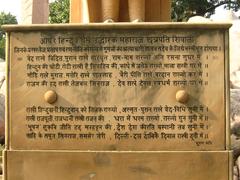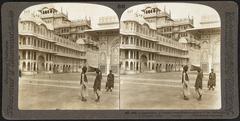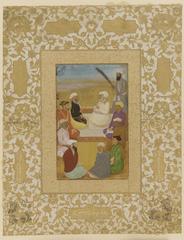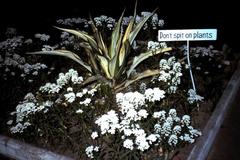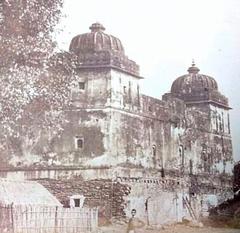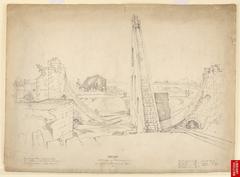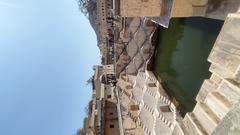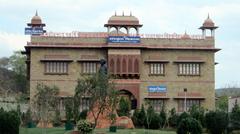Jaipur Junction Railway Station: Visiting Hours, Tickets, and Comprehensive Travel Guide
Date: 14/06/2025
Introduction
Jaipur Junction Railway Station is the principal railway gateway to Rajasthan’s capital, Jaipur—famously known as the Pink City. Established in 1875 during the British colonial era, the station has grown from a strategic trade and administrative hub into Rajasthan’s largest and busiest railway station, serving over 40,000 passengers daily (Outlook Traveller; Jaipur Junction Official). Its iconic pink façade harmonizes with Jaipur’s unique Indo-Saracenic, Mughal, and Victorian-influenced architecture, making it both a historical landmark and a modern transit center.
Significant modernization projects, including the ongoing Amrit Bharat Station Scheme, are elevating Jaipur Junction to world-class standards while preserving its architectural heritage (Financial Express; Times of India). The station is strategically located near prominent attractions such as City Palace, Hawa Mahal, and Amber Fort, serving as a convenient starting point for exploring Jaipur’s historical and cultural sites (Jaipur Junction Tourism). This guide covers Jaipur Junction’s history, architecture, visitor information, connectivity, amenities, and practical travel tips.
Table of Contents
- Origins and Early Development
- Architectural Significance
- Expansion and Modernization
- Role in Rajasthan’s Railway Network
- Visitor Information: Hours, Tickets, and Accessibility
- Integration with Modern Transport Systems
- Cultural and Economic Impact
- Recognition and Awards
- Redevelopment Initiatives
- Station Layout and Infrastructure
- Facilities and Amenities
- Connectivity and Transport Links
- Nearby Attractions
- Practical Travel Tips
- FAQs
- Visuals
- Additional Resources
Origins and Early Development
Jaipur Junction’s origins date back to 1875, during a period of rapid railway expansion under British rule. Built near the city center at a 428-meter elevation, the station was designed to facilitate trade, administration, and the movement of people, playing a pivotal role in Jaipur’s transformation into a modern urban center (Outlook Traveller; Jaipur Junction Official).
Architectural Significance
The station’s striking pink façade reflects Jaipur’s citywide color scheme and blends Indo-Saracenic, Mughal, and Victorian architectural influences. Ornate arches, domes, and minarets symbolize a blend of Rajasthani motifs and colonial design, making Jaipur Junction a visual and cultural landmark (Outlook Traveller).
Expansion and Modernization
Significant expansion occurred in the mid-20th century, with Maharaja Sawai Man Singh II laying the cornerstone of the present station building in 1956. Completed in 1959, this phase included new platforms, amenities, and greater operational capacity (Adda247 Current Affairs). Modern upgrades since 2019 include LED lighting, enhanced waiting areas, and improved accessibility, bringing the station to “airport standards” (Jaipur Junction Official).
Role in Rajasthan’s Railway Network
Jaipur Junction serves as the headquarters of the Jaipur railway division under the North Western Railway zone (Adda247 Current Affairs). Handling over 100 broad gauge trains daily, it connects Jaipur with Delhi, Mumbai, Ahmedabad, Agra, and other major cities (TrainSpread). Its location near the Sindhi Camp bus terminal and the Jaipur Metro station makes it a vital multimodal transport hub (Jaipur Junction Official).
Visitor Information: Hours, Tickets, and Accessibility
- Operating Hours: Open 24/7. Ticket counters typically operate from 6:00 AM to 10:00 PM.
- Ticketing: Tickets can be purchased at station counters, automated vending machines, or online via the Indian Railways website and authorized apps.
- Ticket Types: General, reserved (AC/non-AC), and tourist tickets are available.
- Accessibility: Facilities include ramps, tactile pathways, lifts, escalators, and dedicated assistance for differently-abled passengers.
Integration with Modern Transport Systems
Jaipur Junction is seamlessly integrated with the Jaipur Metro (Pink Line), which began operations in 2015, providing rapid connections to key areas of the city (RajRAS). The nearby Sindhi Camp bus terminal offers intercity and interstate bus services, while taxi and auto-rickshaw stands ensure easy last-mile connectivity.
Cultural and Economic Impact
The station’s proximity to major tourist attractions, such as City Palace, Hawa Mahal, and Jantar Mantar, makes it a key entry point for visitors. Jaipur Junction supports a thriving ecosystem of vendors, porters, and service providers, and is essential to the city’s tourism, commerce, and daily life (Jaipur Junction Tourism).
Recognition and Awards
Jaipur Junction has earned numerous accolades for sustainability, cleanliness, and operational excellence:
- Platinum and Silver Ratings by IGBC
- 2nd Place in QCFI Cleanliness Survey (2018)
- National and Rajasthan Energy Conservation Awards
- 5S and ISO 14001 Certifications (Jaipur Junction Official)
Redevelopment Initiatives
Jaipur Junction is undergoing a comprehensive ₹716.88 crore redevelopment under the Amrit Bharat Station Scheme (Financial Express). The four-phase project, managed by Girdhari Lal Construction, includes:
- Modern concourses, executive lounges, and waiting halls
- Upgraded food courts and shopping zones
- Enhanced digital amenities: Wi-Fi, e-ticket kiosks, real-time info
- Lifts, ramps, escalators, and battery-operated carts for accessibility
- Advanced security systems and green infrastructure (Times of India; Jaipur Junction Facilities)
Station Layout and Infrastructure
- Platforms: 8 broad-gauge platforms with foot overbridges, escalators, and elevators (India Rail Info)
- Tracks: Fully electrified, double-lined tracks for express, superfast, and premium trains (including Palace on Wheels) (Agate Travel)
- Services: Handles both terminating and through trains, with dedicated sidings for maintenance.
Facilities and Amenities
- Waiting Areas: Spacious halls, AC/non-AC waiting rooms, and retiring rooms (bookable online or onsite)
- Refreshments: IRCTC food plaza, local specialty vendors, branded outlets
- Sanitation: Clean restrooms, filtered drinking water, continuous housekeeping
- Accessibility: Wheelchair assistance, braille signage, tactile paths, priority parking
- Security: 24/7 CCTV surveillance, RPF/GRP patrolling, baggage scanners
- Digital Services: Free high-speed Wi-Fi, digital info boards, mobile charging points
- Tourist Services: Information counter, cloakrooms, foreign exchange, ATMs
Connectivity and Transport Links
- Metro: Direct access via Jaipur Metro Pink Line (Agate Travel)
- Bus: Sindhi Camp terminal (2-3 km away) for city and intercity routes
- Taxis/Autos: Prepaid, metered, and app-based (Ola, Uber) options at station exits
- Airport: Jaipur International Airport is 13.5 km away, accessible by taxi or auto-rickshaw
Nearby Attractions
- Within 5 km: City Palace, Jantar Mantar (UNESCO), Hawa Mahal, Albert Hall Museum
- Within 10–15 km: Amer Fort, Jaigarh Fort, Nahargarh Fort, Galta Ji Temple
- Markets: Bapu Bazaar, Johari Bazaar; Sanganeri print shops under “One Station One Product”
- Day Trips: Bagru (block printing), Tonk (heritage town), Ranthambore National Park
Practical Travel Tips
- Visit from October to March for best weather.
- Reserve retiring rooms and lounges in advance.
- Use authorized porters and prepaid cabs for safety.
- Check train schedules for updates during ongoing construction (ET Now News).
- Utilize digital displays and the Audiala app for real-time updates.
Frequently Asked Questions (FAQs)
Q1: What are Jaipur Junction’s visiting hours?
A1: The station operates 24/7; ticket counters typically run from 6:00 AM to 10:00 PM.
Q2: How can I buy tickets?
A2: At station counters, ATVMs, or online via Indian Railways’ official platforms.
Q3: Are there facilities for differently-abled travelers?
A3: Yes, with ramps, elevators, tactile paths, and assistance services.
Q4: Is there secure luggage storage?
A4: Yes, cloak rooms and lockers are available.
Q5: What are top nearby attractions?
A5: Amber Fort, City Palace, Hawa Mahal, Jantar Mantar, and local markets.
Visuals
Alt text: Jaipur Junction Railway Station’s distinctive pink façade and heritage architecture.
Alt text: Location and connectivity of Jaipur Junction within Jaipur city.
Additional Resources
- Official Jaipur Junction Website
- Indian Railways Official Portal
- Jaipur Tourism Official Site
- India Rail Info
- Agate Travel
Conclusion
Jaipur Junction Railway Station exemplifies the harmonious blend of historical heritage and modern infrastructure. Its comprehensive amenities, strategic connectivity, and ongoing redevelopment ensure a seamless and comfortable experience for all travelers. Serving as both a transport hub and a cultural gateway, Jaipur Junction stands ready to welcome visitors to the vibrant Pink City. For real-time updates, downloadable guides, and personalized tips, download the Audiala app and follow us on social media.
Sources:
